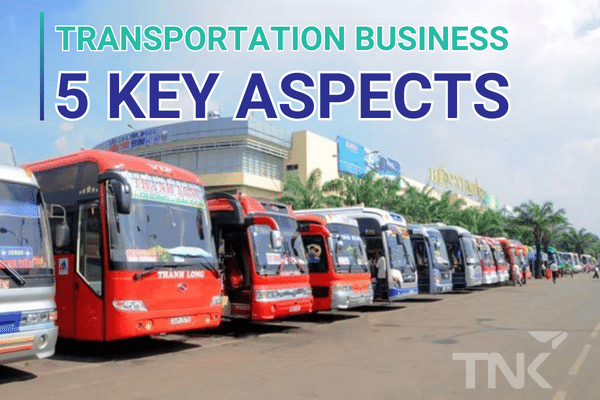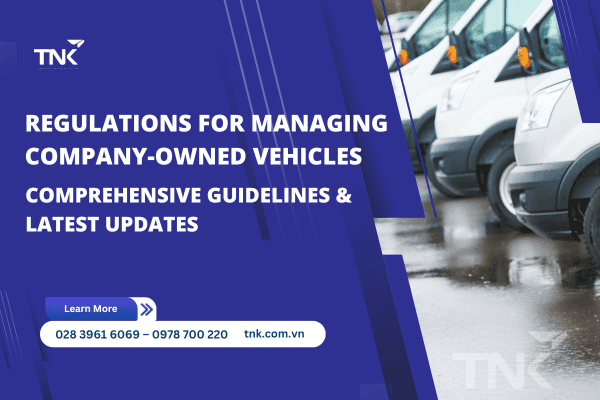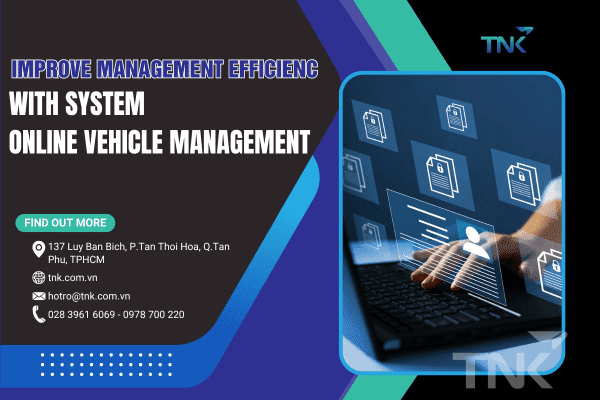Artificial intelligence (AI) is increasingly penetrating deeply into all areas of human life and the transportation industry is not an exception. AI has the ability to calculate and process data quickly and accurately, thereby building intelligent systems that can make optimal decisions for coordinating and arranging routes more effectively than ever. Machine learning algorithms are applied to analyze huge amounts of traffic data, predict vehicle density and control traffic light systems to limit traffic jams.
In this article, let’s join TNK to learn about detailed information about the application of AI in transportation including the benefits, challenges as well as the potential of AI in solving transportation industry problems, contributing Build a safer and more sustainable transportation system.
What is AI in transportation?
Have you ever imagined a machine that could drive itself, diagnose diseases, or even compose music? That is AI – Artificial Intelligence, a field of science fiction that is gradually becoming reality. Researchers develop and gradually apply artificial intelligence widely in many fields to assist people in performing their work more accurately. One of the important application areas of AI is transportation industry software.
The intelligent AI system can analyze tons of traffic data, provide optimal routes, and control the vehicle. Thanks to this, the risk of accidents due to human error is completely eliminated. At the warehouse, AI robots automate the shelving, packaging, and internal transportation processes, minimizing boring labor and improving productivity. Staff can focus on creative, senior management work. Leveraging the power of this breakthrough technology will be the key to helping businesses in the industry improve their competitive advantage in the future.
AI in transportation plays an important role in solving today’s difficult problems, including:
- Smarter traffic coordination system, optimizing traffic flow, thus reducing traffic congestion, saving travel time and fuel.
- The system assists the driver in recognizing dangers, issuing warnings and automatically adjusting driving behavior to minimize accidents.
- The system optimizes route planning, goods tracking, fleet and employee management, thereby improving efficiency and saving transportation costs.
- AI is the foundation for the birth of self-driving vehicles, flying cars, electric cars,… which promise to revolutionize the transportation industry in the future.
Ai’s interests in transportation
Improve usage efficiency
- Optimize the use of public transportation, reduce the load on the transportation system and save travel time for people.
- Intelligent traffic coordination, reducing traffic congestion and traffic accidents.
- Developing smart traffic systems, drivers can find parking spaces more easily, minimizing congestion at traffic hot spots.
Develop transportation services
- Freight transport management software can help develop on-demand transport services to meet the diverse needs of people.
- Develop shared transportation services, helping to save transportation costs and minimize environmental impact.
- Developing automated transportation services, helping people save time and effort.
Enhanced security and confidentiality
- Identify and prevent fraud, smuggling and terrorism in the transportation industry.
- Protect goods during transportation.
- Track and monitor transport vehicles, ensuring safety for drivers and passengers.
Promote the development of other industries
- Promote the development of other industries such as tourism, e-commerce, logistics,…
- Create new job opportunities in transportation-related fields.
- Improve labor productivity and operational efficiency of businesses.
The application of AI in transportation brings many potential benefits to both individuals and society.
For individuals:
- Reduce travel time, save travel costs.
- Improve safety, comfort and convenience when traveling.
- Create many new job opportunities in the field of transportation technology.
For society:
- Reduce traffic congestion, improve air condition.
- Contribute to reducing traffic accidents and protecting human lives.
- Increase the efficiency of the transportation system.
Ai applications in transportation
Cargo
- State-of-the-art AI systems help determine the optimal shipping route, considering everything from traffic and weather conditions to warehouse location and destination. Thanks to this, businesses can significantly save time and transportation costs, increasing business efficiency.
- GPS positioning in smart transportation business grasp the location and status of goods anytime, anywhere. This ensures supply promptly meets customer needs, minimizes the risk of loss or damage, and improves outstanding service quality.
- With the ability to predict future transportation needs, AI in transportation helps businesses proactively coordinate appropriate resources, avoiding shortages and waste. The supply chain operates smoothly, responding flexibly to any market fluctuations.
- The latest advancement, self-driving trucks controlled by AI is capable of transporting goods safely and effectively without human intervention. Enterprises reduce the labor burden, focus resources on other strategic aspects, and raise transportation activities to a new level.
Passenger transport
- Artificial intelligence is used to develop self-driving buses and self-driving taxis to help move passengers more safely and efficiently.
- Car booking applications: AI is used in car booking applications such as Grab, Gojek,… to help connect users with drivers quickly and effectively.
- The system can effectively manage passengers, including ticket sales, ticket checking, passenger location tracking,…
Air
- Manage passenger traffic at airports, reduce waiting and check-in times for passengers.
- Forecast future flight demand, helping airlines proactively adjust flight schedules and ticket prices.
- Maintain aircraft more effectively, detect potential damage early and reduce the risk of accidents.
- Develop automatic aircraft, reduce pilot workload and improve flight safety.
Shipping
- Plan optimal sea routes based on weather conditions, ocean waves and obstacle locations.
- Effective fleet management, tracking ship location, ship status and cargo on board.
- Rescue at sea, search for ships in distress and rescue victims.
- Automatic ship steering helps transport goods safely and effectively without human intervention.
Ai’s challenge in transportation
Besides the great benefits, the application of AI in transportation also has some potential challenges that need to be addressed.
Network security issue
AI systems in transportation can be attacked by hackers, leading to safety risks for drivers, passengers and goods. For example, hackers can infiltrate the automatic truck control system, leading to the risk of traffic accidents. Therefore, strict cybersecurity measures are needed to protect AI systems in transportation.
Ethical and legal issues
Using AI in transportation can raise ethical issues such as:
- Who is responsible in case of an accident caused by a self-driving car?
- How to ensure fairness and transparency in the use of AI?
- The use of AI can lead to discrimination against certain groups of people, such as the elderly, people with disabilities,…
There needs to be clear regulations and ethical standards to ensure the responsible and humane use of AI in transportation.
A legal framework must be comprehensively built to manage the use of AI in transportation, clear regulations will ensure society is safe and fair in the application of AI in this field.
Employment issues
According to predictions, millions of jobs could be affected by automation in the next decade. To address these challenges, policies to support finding new jobs need to be developed and implemented effectively by the Government. Skills training, career change, and start-up support programs need to be prioritized to help workers affected by AI adapt to the new labor market.
The infinite possibilities of AI are waiting for us to discover to help society become more advanced, which also requires synchronous coordination between state agencies, businesses and people. With the joint efforts of all parties, AI will certainly continue to bring many breakthroughs and sustainable solutions, contributing to improving people’s quality of life and promoting socio-economic development. future society of the country.
TNK Technology & Solution Company Limited
Address: 137 Luy Ban Bich, Tan Thoi Hoa Ward, Tan Phu District, Ho Chi Minh City
Hotline: 028 3961 6069 – 0978 700 220
Email: hotro@tnk.com.vn
Website: tnk.com.vn
– Develop shared transportation services, helping to save transportation costs and minimize environmental impact.
– Improve labor productivity and operational efficiency of businesses.
– Ensure supply promptly meets customer needs, minimizing the risk of loss or damage.
– Passenger transportation: Artificial intelligence is used to develop self-driving buses, self-driving taxis, and vehicle software to help move passengers more safely and efficiently.
– Aviation: Maintain aircraft more effectively, detect potential damage early and minimize the risk of accidents.
– Maritime: Plan optimal sea routes based on weather conditions, ocean waves and locations of obstacles. Effective fleet management, tracking ship location, ship status and cargo on board.
– There needs to be clear regulations and ethical standards to ensure the responsible and humane use of AI in transportation.
– Millions of jobs could be affected by automation in the next decade.

Working in a unit specializing in providing support software for the TNK transportation sector. With a deep understanding of the industry and proficiency in technology, we are committed to providing reliable information and solutions, helping readers feel confident and secure in the process of learning and applying technology. into the transportation sector.

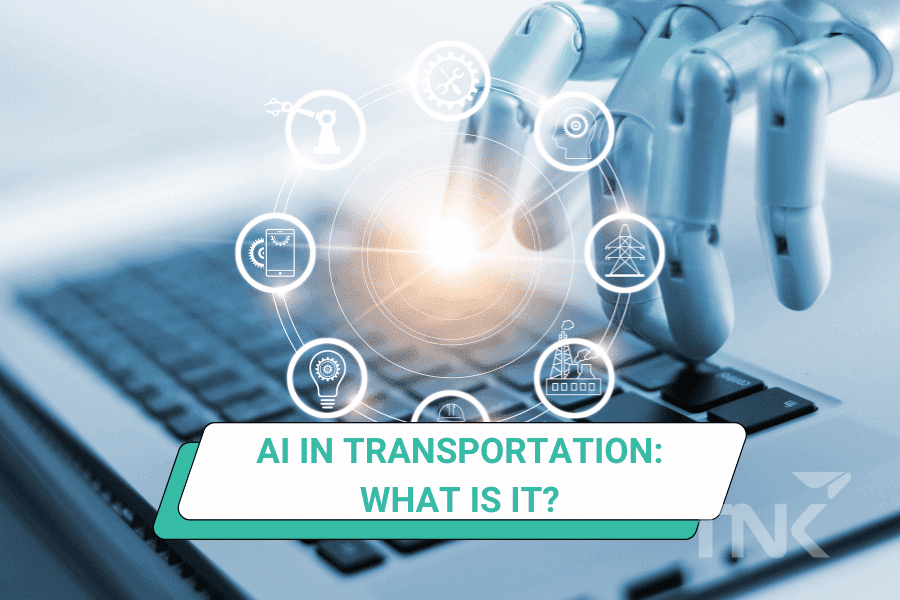
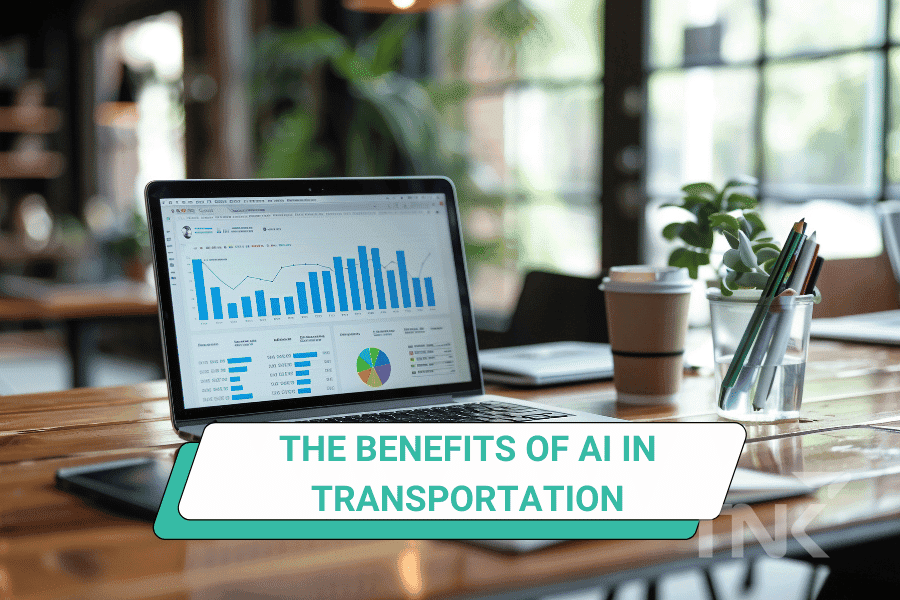
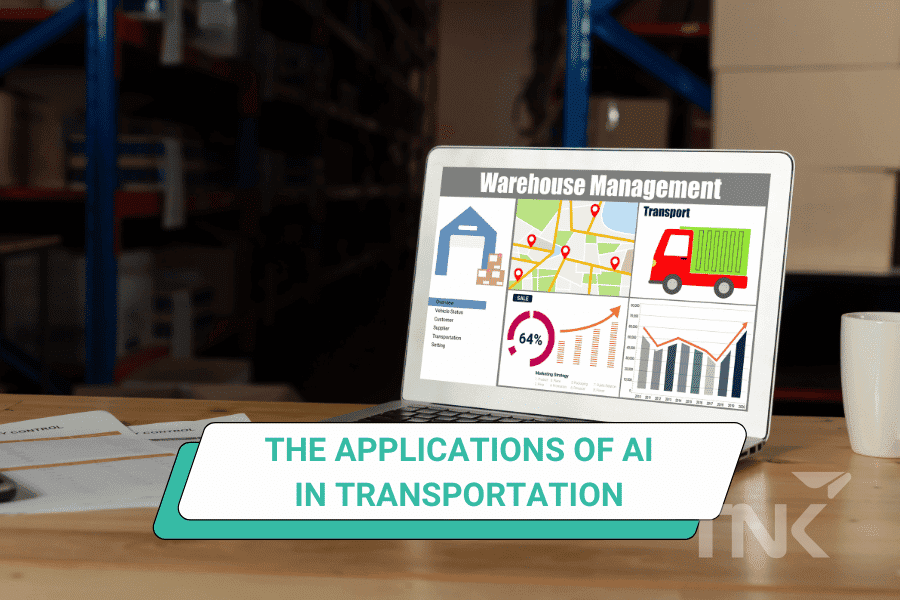
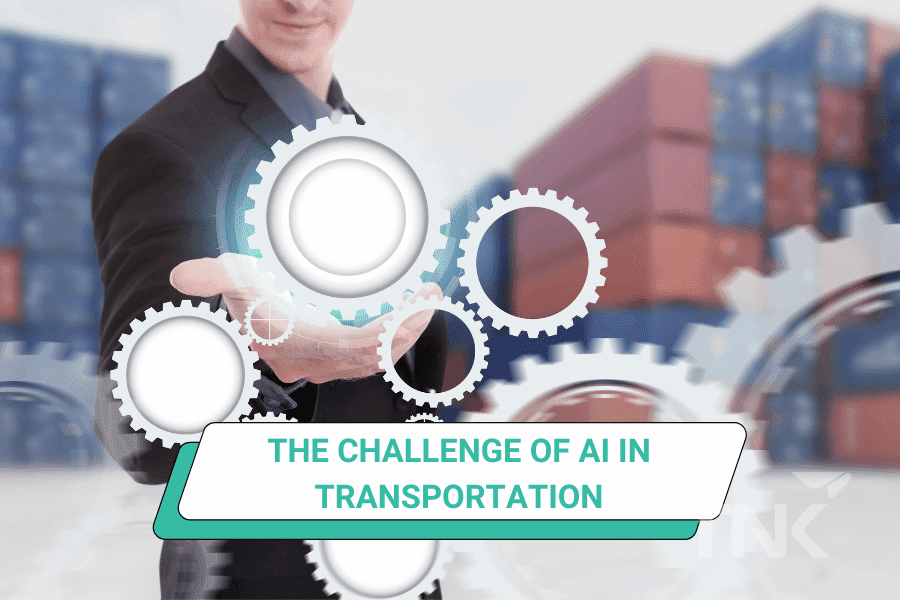
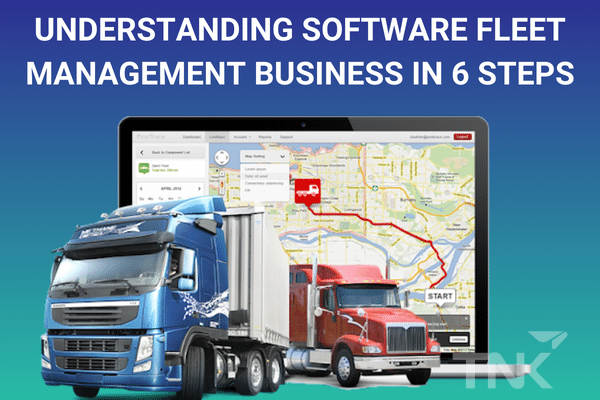
![[Top 15+] Container Transportation Management Software: Digitally Transforming Business Operating Processes](https://tnk.com.vn/wp-content/uploads/2024/04/top-15-container-transport-management-software.png?v=1712029303)
